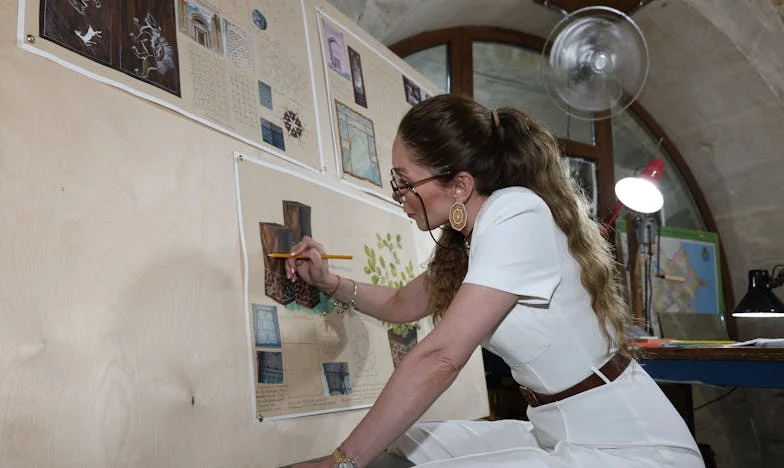When the Will Breaks: A Family Torn by Love and Law
“You couldn’t take care of your own mother, but you have the energy to drag me to court?” I spit the words across the kitchen table, my fists clenched so tightly my knuckles turn white. My mother, Linda, stares back at me with that same icy detachment she always wore—her armor against the world, and against me.
She looks past me, out the window, as if the peeling paint on the back porch is suddenly more interesting than the daughter she left behind. “Don’t make this harder than it already is, Emily. I just want what’s fair.”
“Fair?” I laugh, but it comes out ragged, almost a sob. “You think it’s fair to fight me for the house I grew up in? The house you left behind, just like you left me and Grandma?”
My voice echoes in the empty room. I feel the ghost of my grandmother—her scent of lavender and old books, her gentle hands on my hair—slipping further away with every word we say.
I was eight years old the first time my mother disappeared for a new job, a new man, or just a new start. She was always searching for something, but never for me. It was Grandma Ruth who bandaged my scraped knees, read me stories, and sang me to sleep on stormy nights. She kept the lights on, both in the house and in my heart.
When Grandma’s health started to fail, I moved back in after college. I was twenty-four, working as a barista by day and her caregiver by night. My friends went to happy hours; I learned to manage her medications, clean bedsores, and navigate the labyrinth of Medicare paperwork. Mom called sometimes, from Florida or Arizona or wherever she’d landed, her voice always distant. “How’s Mom?” she’d ask, always rushing, always distracted. “Tell her I love her. I’ll try to get there soon.”
She never did. Not when Grandma broke her hip, not when she stopped remembering my name, not even when hospice came. It was just me, holding Grandma’s papery hand as she slipped away, whispering, “I love you. I promise I’ll keep the house safe.”
The funeral was small. Mom showed up late, in black designer sunglasses, and left before the last hymn faded. We barely spoke. Two weeks later, I found a letter from her lawyer in the mailbox: a formal demand for half the house, the house she’d abandoned twenty years ago. That’s when the war began.
I throw myself into work, into cleaning, into anything to keep from thinking about the court date looming over us. My boyfriend, Jake, tries to comfort me. “She’s your mother, Em. Maybe she’s just hurting.”
I snap, “She doesn’t get to be the victim now. She wasn’t here when it mattered.”
But doubt gnaws at me in the quiet hours. Maybe I am being selfish. Maybe she deserves something, even if it’s just the faded family home. Still, I can’t forgive her—not for leaving me, not for leaving Grandma, and certainly not for this.
The day of the hearing, I sit on the hard wooden bench outside the courtroom, hands shaking. Mom arrives, all business, her lawyer in tow. She won’t look at me. I wonder if she’s scared, or just cold. Her lawyer says, “Linda, are you ready?”
She nods, but her lips tremble. For a moment, I see something—regret, maybe, or fear. But then it’s gone, replaced by the mask she always wears.
Inside, the judge listens to our stories. My voice cracks as I describe the years I cared for Grandma. Mom talks about her own struggles—how she sent money, how she loved Grandma from afar. I want to scream. I want to beg her to stop pretending.
Afterward, we pass each other in the hallway. For the first time in years, Mom stops and faces me.
“Emily,” she says quietly. “I know you hate me. But I never stopped loving you. Or my mother. I just… I didn’t know how to be here.”
I look at her, searching for the mother I needed. “Why now, Mom? Why fight for the house?”
Tears fill her eyes. “Because it’s the only thing left of her. And of you. I thought if I could have a part of this place, maybe I could fix what I broke.”
I want to hug her; I want to scream. Instead, I just say, “Some things you can’t fix with a lawsuit, Mom.”
The court rules we must sell the house and split the proceeds. I pack my boxes in silence, feeling every memory echo in the empty rooms. Jake helps, but I barely speak. When Mom comes to say goodbye to the house, I let her walk through alone. She stops in Grandma’s bedroom, touching the old quilt, her shoulders shaking with silent sobs. I almost reach for her, but the years between us feel too wide.
When the house is empty, we stand on the porch together. The sun is setting, orange and gold over the neighborhood I grew up in.
“I’m sorry, Emily,” she says. “For all of it.”
I nod, not trusting myself to speak. I want to forgive her, but I don’t know how. Not yet.
Driving away, I wonder: How do you move on when the people who should have loved you most are the ones who hurt you the deepest? Can a broken family ever truly heal, or do we just learn to live with the cracks?
